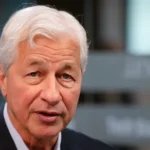Gold prices have surged dramatically, reaching a new record of $4,074 per ounce on Monday, marking a 55% increase this year alone. This rise continues to attract investors, driven by growing fears surrounding inflation and geopolitical uncertainties. Exchange-traded funds (ETFs) linked to gold have experienced unprecedented inflows, underscoring the scramble for this precious metal.
However, Peter Ricchiuti, a finance professor at Tulane University’s Freeman School of Business, offers a contrarian view. Despite gold’s remarkable performance, Ricchiuti expresses skepticism about the rationale behind its ascent. Having witnessed several gold rallies over the years, he challenges the notion that gold is a sound investment, arguing that it lacks significant real-world utility compared to other metals.
Ricchiuti highlights that metals such as aluminum, platinum, and silver have industrial applications, while gold primarily serves decorative purposes in jewelry and lacks functional use in manufacturing processes. “If you want to play aluminum or platinum or silver, they all have uses, and gold effectively has no uses,” he stated, emphasizing the limitations of gold as an investment vehicle.
His criticism extends to cryptocurrencies, notably bitcoin, which some proponents liken to “digital gold.” Ricchiuti categorizes both gold and bitcoin as speculative assets rather than genuine investments. He points to the “greater fool theory,” where investors buy an asset with the expectation that someone else will pay an even higher price, rather than due to any inherent value.
He asserts that the real challenge facing investors is the misconception that gold holds intrinsic value, akin to stocks that represent a share in a company’s growth and earnings. “Some people [will say] it’s just a piece of paper. But it isn’t. Stocks represent growth and value,” he said.
While acknowledging the appeal of diversifying investments amid rising stock prices and economic uncertainty, Ricchiuti remains firm in his belief that gold offers minimal utility beyond speculation. He suggests that even as an inflation hedge, stocks might provide a more suitable refuge for long-term investors. “If you’re a long-term investor and you believe in the story and you believe in management, I think over long periods of time, stocks will do much, much better,” he concluded.







